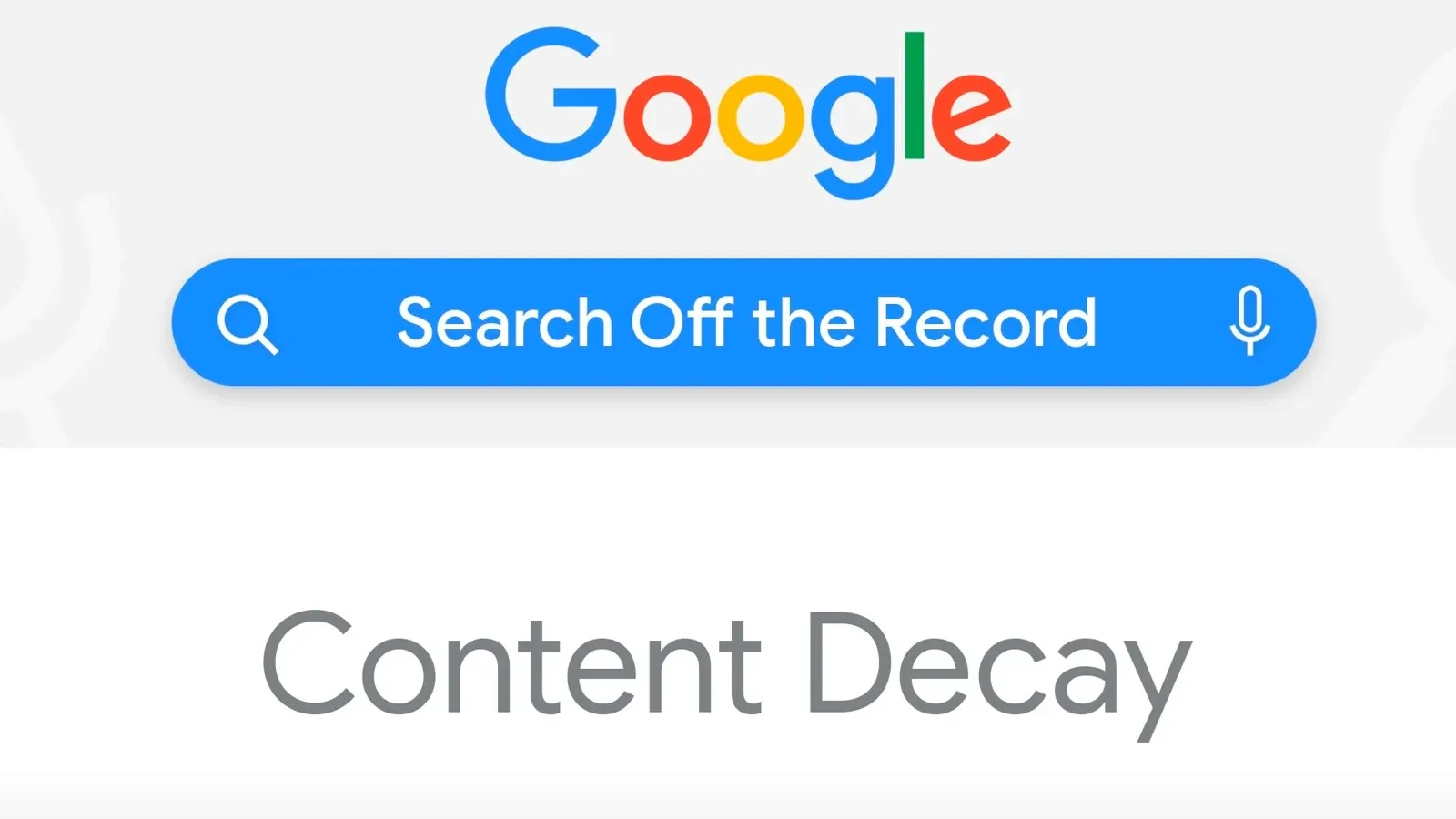Google Search Central discusses addressing Content Decay
The episode, titled Content Decay and Maintaining Relevancy, hosted by Lizzi Sassman and Google's Search Relations team member John Mueller, emphasizes the importance of addressing aging content to ensure its continued effectiveness in search results.

The "Search Off the Record" podcast, produced by Google Search Central, this week featured a discussion on content decay. The episode, titled Content Decay and Maintaining Relevancy, hosted by Lizzi Sassman and Google's Search Relations team member John Mueller, emphasizes the importance of addressing aging content to ensure its continued effectiveness in search results.
Content decay refers to the gradual decline in the relevance and effectiveness of online content over time. This can be caused by several factors, including:
- Evolving User Needs and Trends: User preferences and search intent can change over time. Content that was once highly relevant might not address current user needs or search queries effectively.
- Shifting Search Engine Algorithms: Search engine algorithms are constantly updated, and content that was previously well-optimized for search may no longer rank as highly due to these algorithmic changes.
- Outdated Information: Information within content can become outdated as industries evolve and knowledge expands. This can lead to inaccurate or irrelevant information for users.
Impact on search performance
Content decay can negatively impact a website's search performance in several ways:
- Reduced Organic Traffic: If content is not ranking well in search results pages (SERPs), it will likely lead to a decline in organic traffic to the website. This can have a negative impact on lead generation, brand awareness, and overall marketing goals.
- Diminished Credibility: Outdated information can erode audience trust and damage a brand's reputation for accuracy and expertise.
- Wasted Resources: Promoting content that is no longer performing effectively is essentially a waste of valuable marketing resources.
Strategies for addressing content decay
The "Search Off the Record" episode highlights several practical steps that website owners and marketers can take to address content decay:
Regular Content Audits: Schedule regular audits to assess the performance and relevance of existing content. Tools like Google Search Console can be helpful in identifying content that might be experiencing a decline in rankings or traffic.
Content Refreshment: Update outdated information, statistics, and visuals within existing content to ensure its accuracy and freshness. This can breathe new life into older content and improve its value for users.
Content Expansion: Consider expanding existing content by adding new insights, case studies, or addressing related topics to enhance its value and comprehensiveness.
Content Repurposing: Repurpose existing content into new formats for different channels, such as social media posts or email marketing campaigns, to maximize its reach and engagement potential.
By understanding content decay and implementing proactive strategies, website owners and marketers can ensure their content remains relevant, valuable, and continues to attract users through search engines. Regularly reviewing content performance, keeping information up-to-date, and adapting content to user needs are crucial for maintaining a fresh and effective content library.

